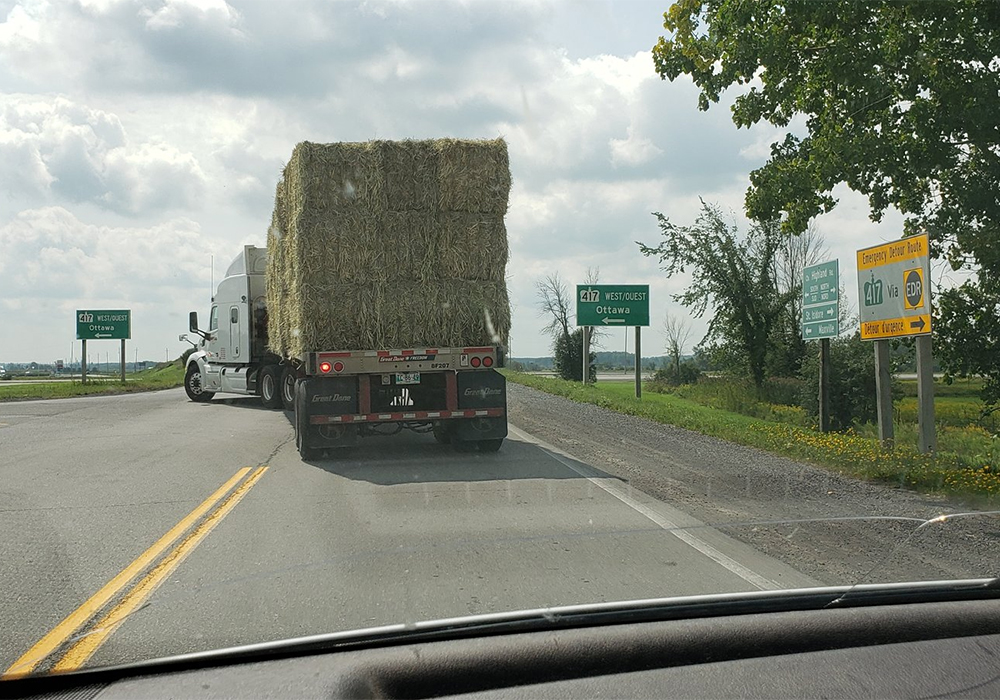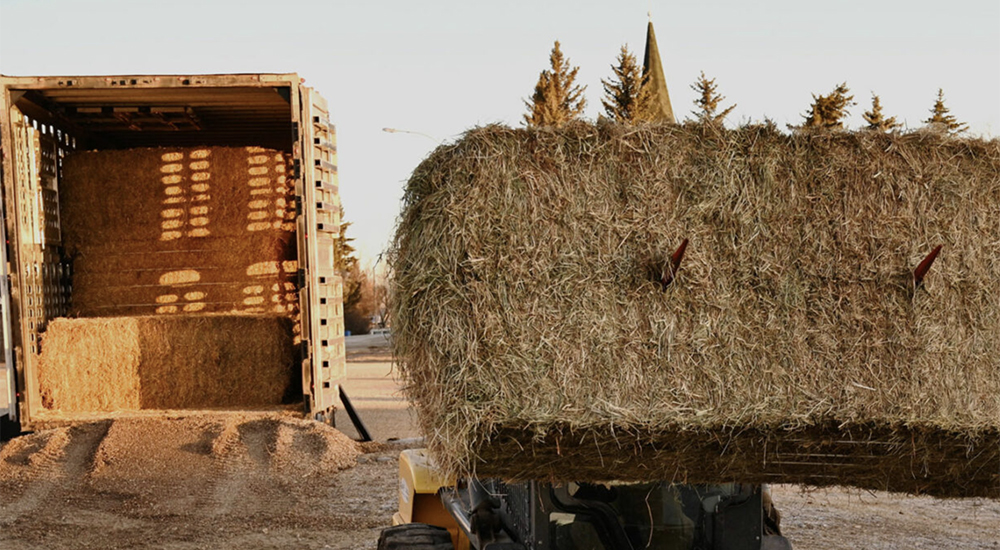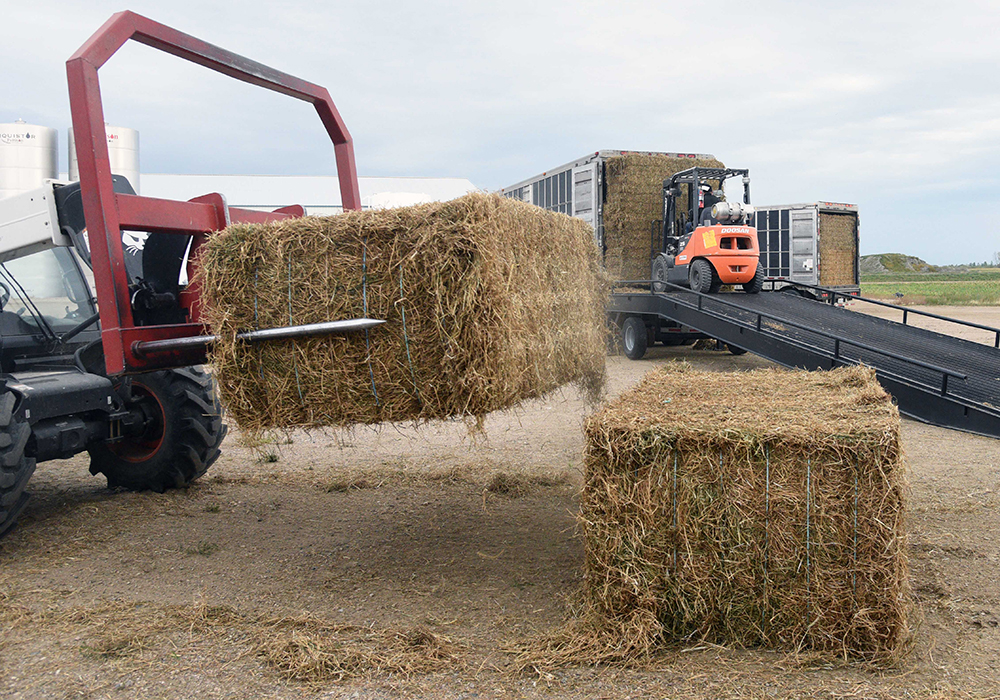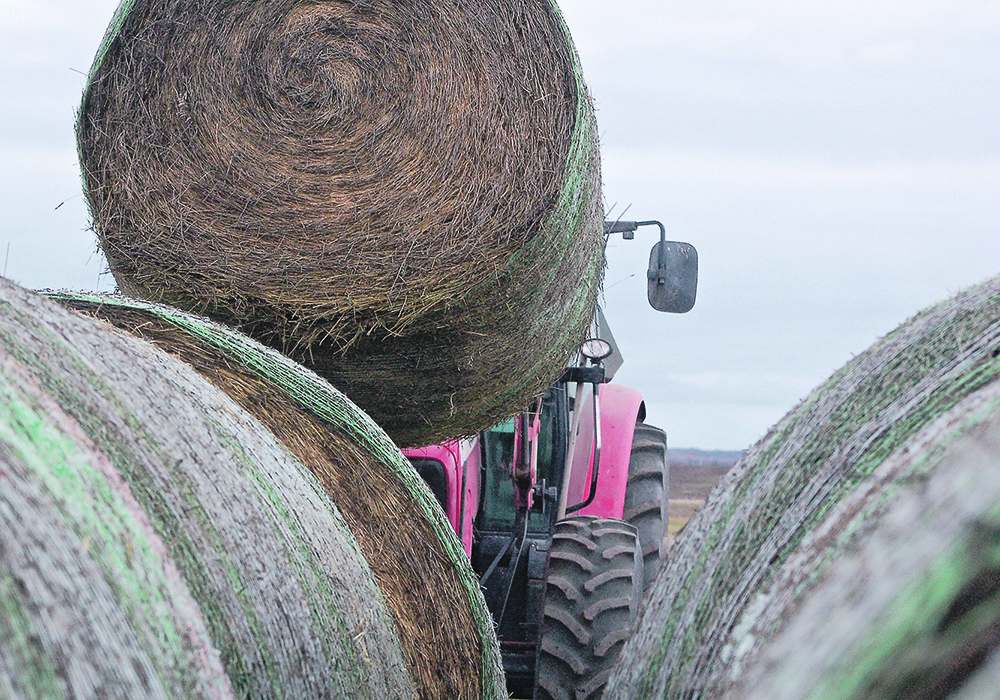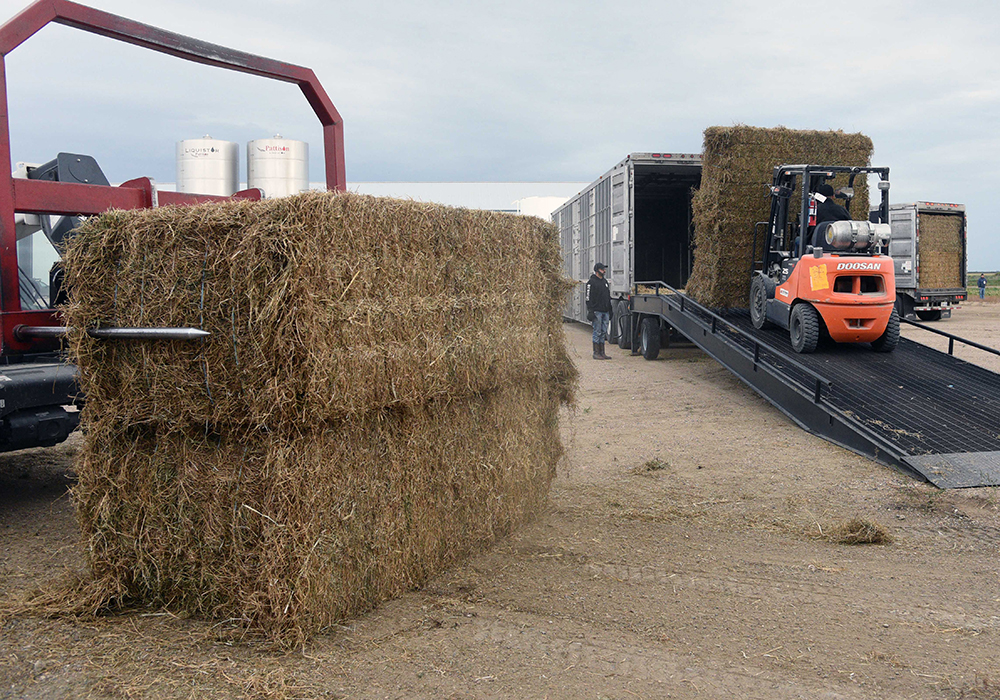OTTAWA — Hay West organizers said they need more money to move livestock feed to the West from Eastern Canada.
Another corporate donor is expected this week, in addition to those that have already contributed, and they want the federal government to add to the $4 million it has already committed.
But even if trucks can be arranged, not all producers who need feed will get it.
Only 150 producers in the drought-affected regions have received hay through the program and about 50 are on the “urgent” list. An estimated 17.7 million pounds of hay have been sent to feed about 40,000 animals.
Read Also

Feds propose overhaul of chronic wasting disease control program
Chronic Wasting disease control program getting updated by Canadian Food Inspection Agency with feedback encouraged from producers.
“We’ve had requests for 300 million lb. of hay and there is supply for 100 million,” said Canadian Federation of Agriculture second vice-president Todd Lewis. “We’ve got 100 million lined up, but it’s to transport it.”
Recipients so far have received their full requests, so for those farmers the program has been significant, he said.
“We’re really at the point now where every animal saved is going to be pretty important because it’s still dry,” Lewis said. “If we can get producers bridged into the spring that’s important.”
Freight costs and a lack of trucks have held up shipping. Canadian National Railway, which donated $125,000 and is matching contributions up to another $125,000, has moved hay in containers.
“Freight costs have been expensive to start with and have only increased,” said Lewis. “We’re at the stage now that there’s been an ask to the federal government to provide more funding, and if they are able to provide that funding, we’ll continue to provide aid to every producer that we can.”
CFA believes that if the federal government came up with more money, it would leverage more contributions. Other organizations that have donated transport money are Farm Credit Canada and Ontario Federation of Agriculture, at $50,000 each, and $12,000 from the Prince Edward Island government.
CFA president Mary Robinson said the initiative is an example of a long-standing tradition of Canadian producers helping their counterparts across the country.
“It has not been an easy road,” she told the CFA annual meeting. “Essentially, there is a limitless demand for hay in the Prairies and CFA is still seeking funding from private corporate and government donors to ship as much hay as possible.”
An impending Canadian Pacific Railway strike would not affect Hay West, Lewis said, because no hay from the program has moved on that railway.


